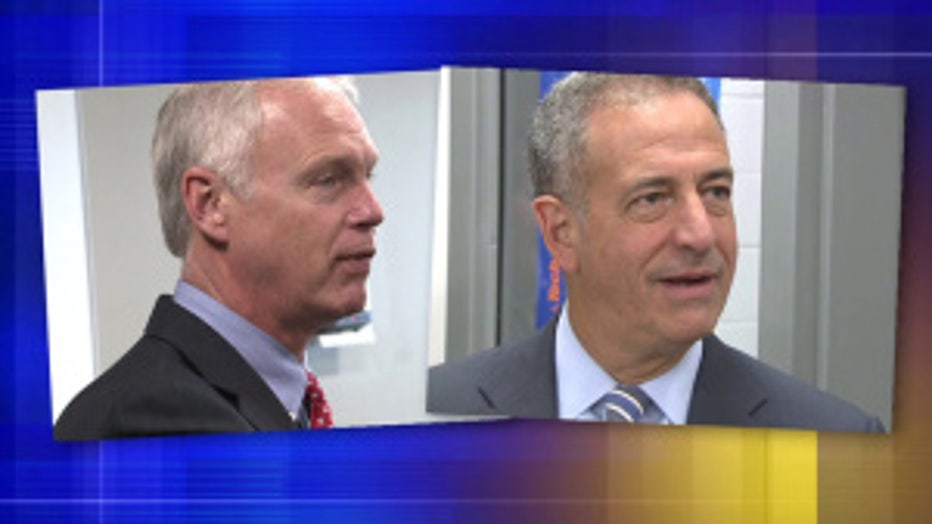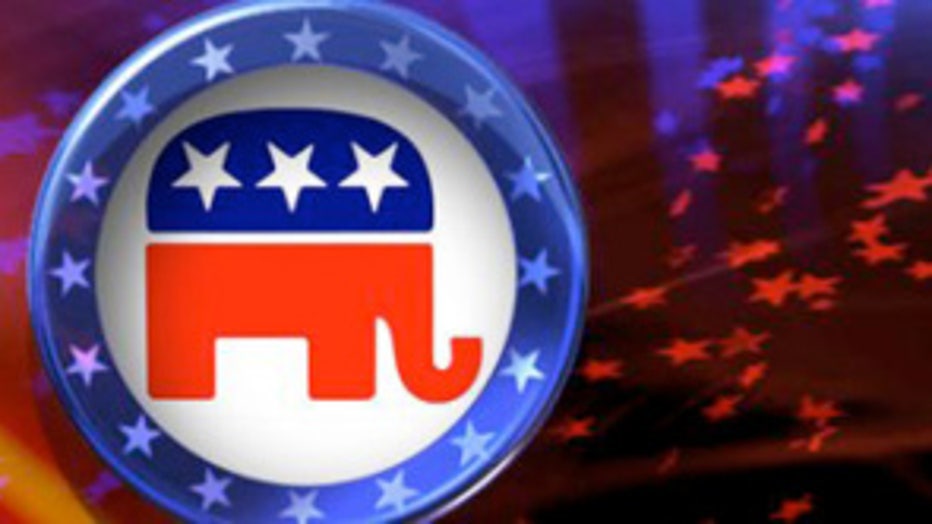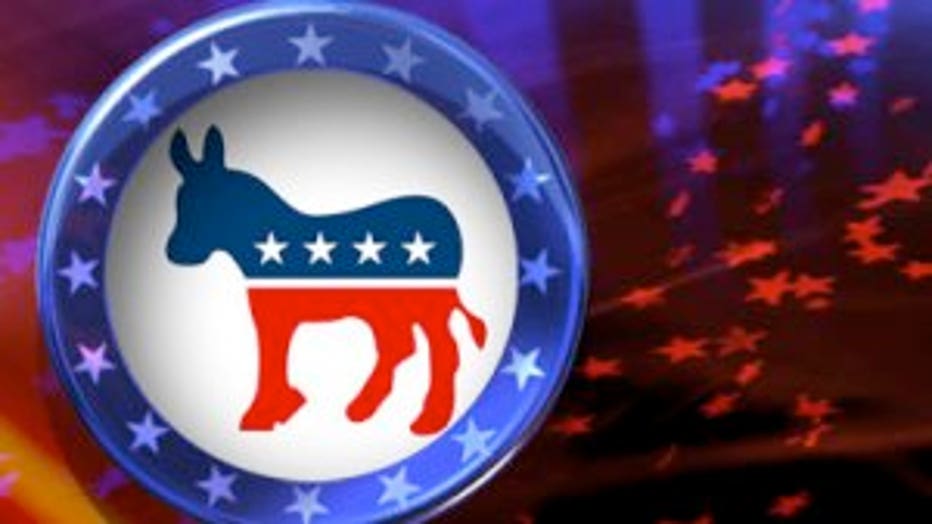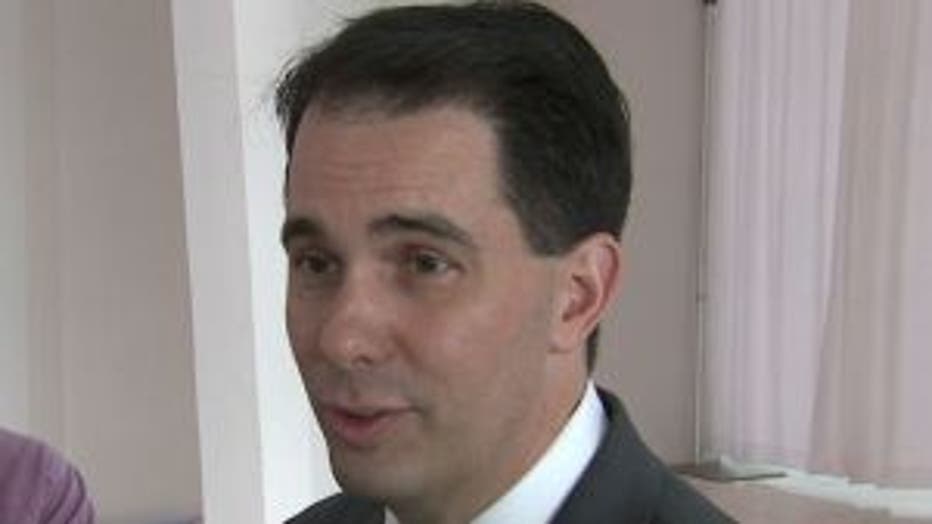MU Law School poll: Feingold leads Johnson by double digits in Senate race
MILWAUKEE -- Longtime U.S. Sen. Russ Feingold maintains a double-digit lead over incumbent Sen. Ron Johnson in the duo's rematch from 2010, according to the Marquette University Law School Poll released Thursday, November 19th.
Feingold held a 49 percent to 38 percent advantage in the survey, which polled 803 voters last week and had a margin of error of 4.2 percent.

Ron Johnson, Russ Feingold
The poll indicated that voters viewed Feingold more favorably than Johnson, whom one out of three people said they didn't know well enough to say whether they liked him.
"That's giving Feingold an advantage right now," poll director Charles Franklin told reporters Thursday. Yet he cautioned that Election Day remains more than 11 months away.
In the previous poll, conducted in September, Feingold held a 14-point advantage.
Johnson's campaign shrugged off the results, saying that voters only know Feingold because he was a U.S. Senator for 18 years.
"Early polls are meaningless – Sen. Feingold led all the early polls in 2010 until the people of Wisconsin proved the professional political class wrong," said Brian Reisinger, a Johnson campaign spokesman.
The survey results -- along with a spree of negative campaign ads from outside groups trying to influence this race -- indicate the campaign could be a race to the bottom for both candidates.
Johnson is viewed favorably by 27 percent of poll respondents. Forty-two percent of those surveyed had a positive view of Feingold, but both numbers are trending downward.
"Favorability ratings of both of them are becoming less positive," Franklin said. "We'll have to see what issues shape up to change the race."
Feingold's campaign brushed off a question about the candidate's favorability trending in the wrong direction, instead highlighting Feingold's overall lead.
"Clearly the voters of Wisconsin think Russ is listening to them and fighting for them, while Johnson is another out-of-touch Washington politician who only sides with the CEOs and billionaires.
Third-party groups have released ads attacking both candidates. The Wisconsin Alliance for Reform launched a TV ad this week suggesting that Feingold has "hypnotized" voters about his political record. Two environmental groups have criticized Johnson's opposition to federal rules designed to place limits on pollution.
"We've got a long ways to go to see how this race shakes out," Franklin cautioned Thursday.
Walker approval remains low
Gov. Scott Walker's approval rating remains upside-down, despite almost daily public appearances designed to show the governor hard at work in Wisconsin after quitting the presidential race.
Only 38 percent of respondents view Walker favorably, while 58 percent disapprove of the job he's doing as governor. The numbers were statistically the same as the previous poll in September.
"Being unhappy with him running for president had a very large effect among both independents and Republicans," Franklin said. "With him back in the state and no longer running, the question is, will their approval of him start to recover now that the presidency is no longer an issue"
Walker's spokeswoman did not respond to an email seeking comment about the poll results.
Trump falls out of the lead
Businessman Donald Trump lost his frontrunner status in Wisconsin's Republican presidential primary to neurosurgeon Ben Carson, the Marquette poll showed.
Carson leads with 22 percent support, followed by Trump and Florida Sen. Marco Rubio with 19 percent and Texas Sen. Ted Cruz with 9 percent.
On the Democratic side, former Secretary of State Hillary Clinton holds a 50-41 percent lead over Vermont Sen. Bernie Sanders.
CLICK HERE to view the entire Marquette Law School Poll

Meanwhile, the Marquette Law School Poll finds Ben Carson the favorite of 22 percent in the Wisconsin Republican presidential primary, closely followed by Donald Trump and Marco Rubio at 19 percent each. In the September Marquette poll, Trump held 20 percent, Carson 16 percent and Rubio 14 percent.
In the new poll, Ted Cruz receives 9 percent, Jeb Bush 6 percent, Carly Fiorina 5 percent and Chris Christie 4 percent. Mike Huckabee, John Kasich and Rand Paul receive 1 percent each, while Jim Gilmore, Lindsey Graham, George Pataki and Rick Santorum are each below one-half percent. Bobby Jindal, whose decision to suspend his campaign came after surveys for this poll were completed, also receives less than one-half percent.

In the Democratic race, Hillary Clinton leads with the support of 50 percent of Democratic registered voters, followed by Bernie Sanders with 41 percent and Martin O’Malley at 2 percent. In September, with Joe Biden included among the choices, Clinton had 42 percent, Sanders 30 percent and Biden 17 percent.
In possible matchups for November, Carson and Rubio edge Clinton by one point each, while Clinton holds a lead over Trump. Sanders holds an advantage over all three Republican candidates:
Paul Ryan
In the aftermath of his election as Speaker of the U.S. House of Representatives, Rep. Paul Ryan is viewed favorably by 49 percent of registered voters and unfavorably by 34 percent, with 17 percent unable to give a rating. When last asked about Ryan in October 2014, 46 percent had a favorable view, 35 percent an unfavorable view and 19 percent were unable to rate him.
Asked if they think “being Speaker will help Ryan represent the people in his district or will it require him to pay more attention to issues outside his district?,” 23 percent say it will help him represent the district while 63 percent think it will require his attention to issues outside the district.
Approval of Walker and legislative parties

Governor Scott Walker
Approval of how Scott Walker is handling his job stands at 38 percent, with 58 percent disapproval. In September, 37 percent approved and 59 percent disapproved.
Thirty-one percent say they approve of the way Republicans in the legislature are handling their job, with 60 percent disapproving and 9 percent saying they don’t know. For Democrats in the legislature, 39 percent approve while 49 percent disapprove, with 12 percent saying they don’t know.
Pollsters interviewed 803 registered voters by land line and cell phone. The margin of error is +/- 4.2 percentage points.

